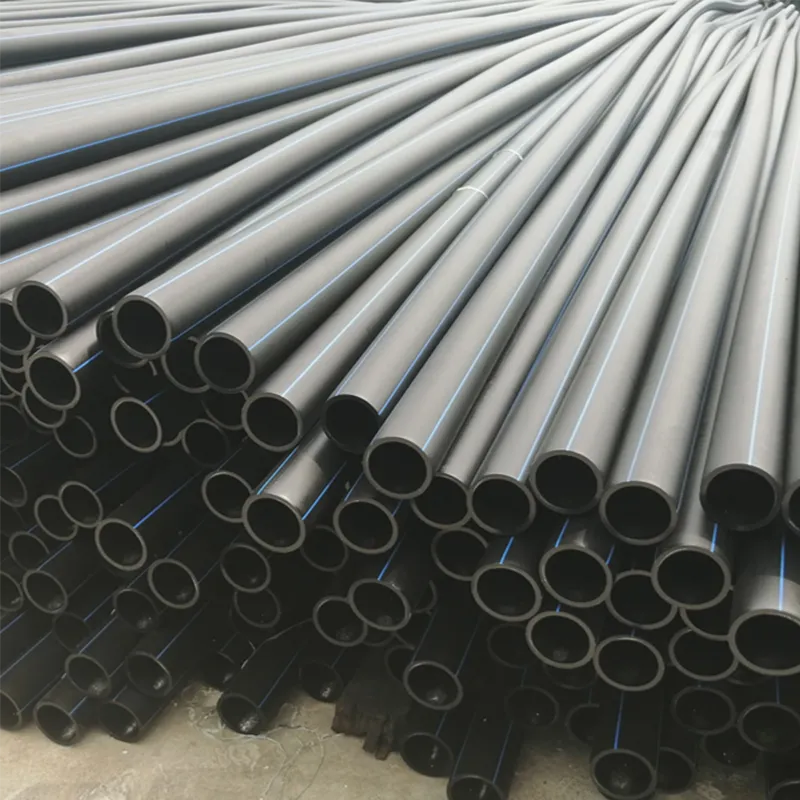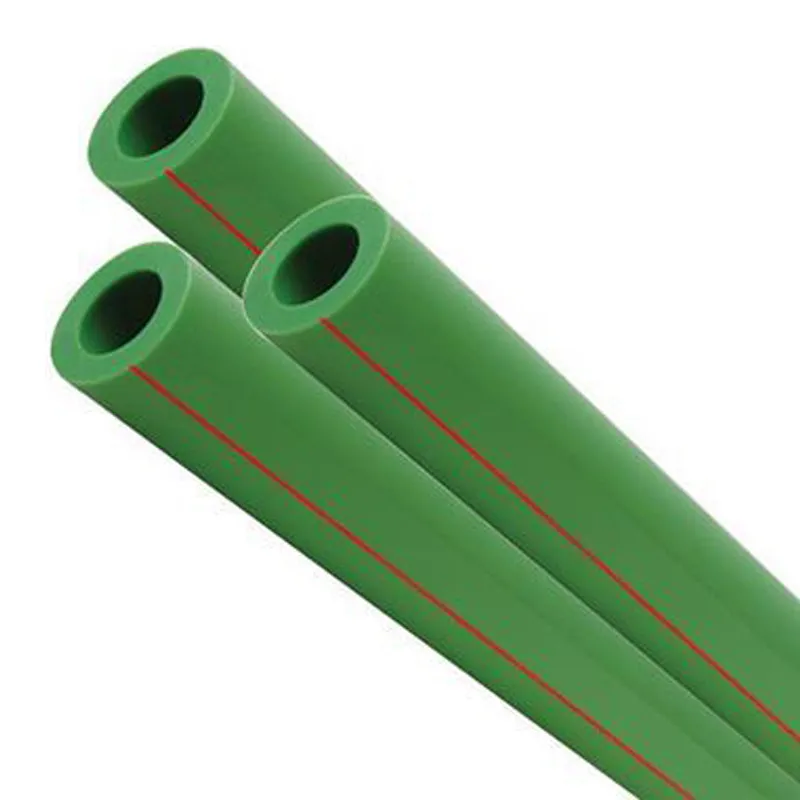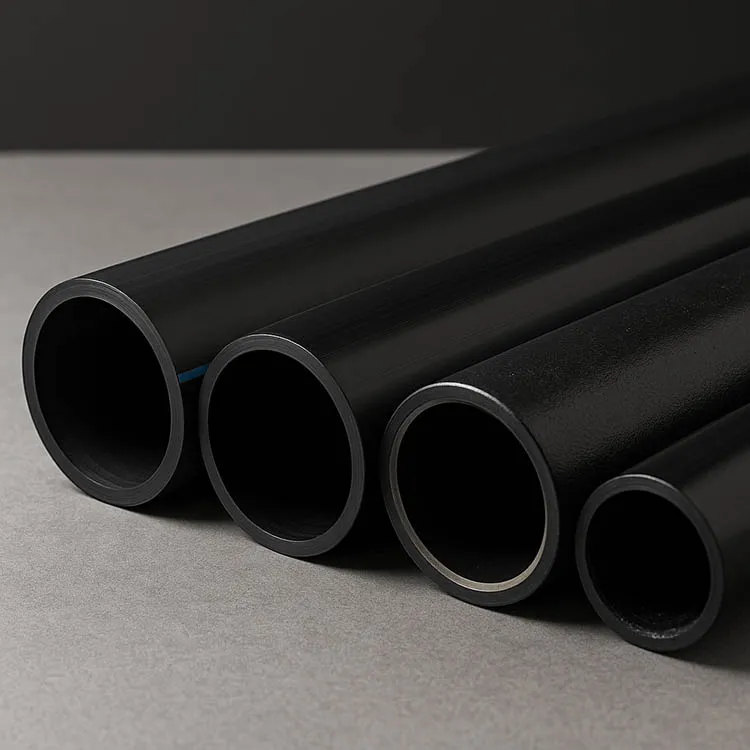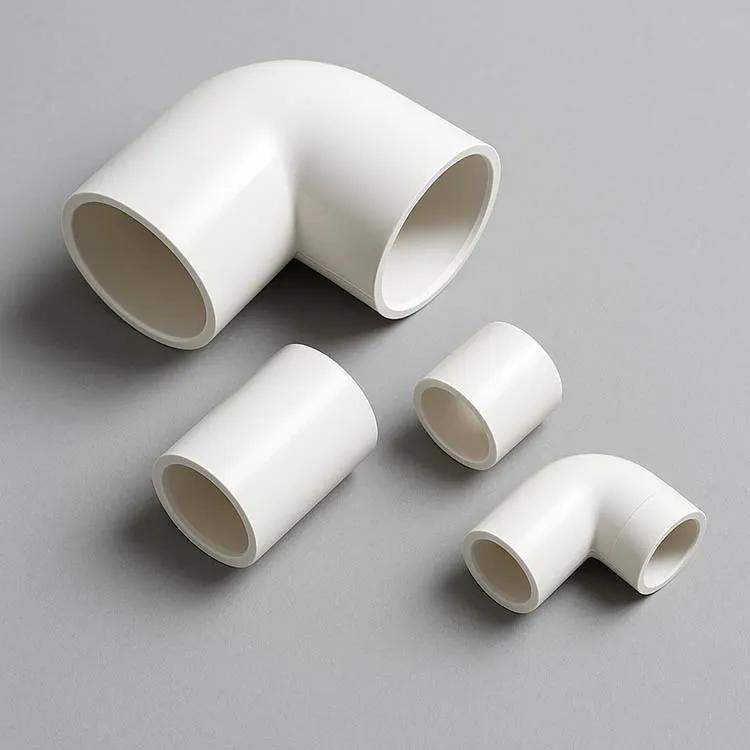Performance advantages of HDPE farm irrigation pipes
Strong corrosion resistance
HDPE farm irrigation pipes are made of high-density polyethylene, a material with high chemical stability and can withstand corrosion from a variety of chemical substances. In the complex chemical environment of farmland, such as long-term contact with fertilizers and pesticides, it will not rust and corrode like metal pipes, greatly extending the service life of the pipes and reducing the cost and trouble of replacing pipes.
Good wear resistance
The pipe has good wear resistance. During the long-term use of farmland irrigation, even if the water contains a small amount of impurities such as sand, it is not easy to cause wear on the inner wall of the pipe. It can always maintain the water delivery performance of the pipe and ensure the stable operation of the irrigation system.
Good low temperature resistance
It can maintain good physical properties in low temperature environments. In winter in cold areas, it will not become brittle and cracked due to low temperature, ensuring the normal irrigation in winter or next spring, and has strong adaptability.
Excellent hydraulic properties
The inner wall is smooth and the water flow resistance coefficient is small. According to relevant tests, its water flow resistance is much smaller than that of traditional concrete pipes. This allows HDPE farm irrigation pipes to use smaller diameters or deliver more water at the same diameter under the same pressure and flow requirements, effectively improving irrigation efficiency and reducing energy consumption.
Good flexibility
It has high flexibility and can adapt to a certain degree of ground subsidence and soil deformation. In farmland, due to changes in geological conditions or the influence of agricultural activities, the ground may subside or move to a certain extent. HDPE irrigation pipes can adapt to such changes through their own bending deformation without damage such as rupture.
Reliable connection
The strength of the connection part is higher than that of the pipe itself by using hot-melt connection or electric-melt connection, forming an integrated pipeline system, which effectively avoids water leakage. This reliable connection method ensures the sealing and stability of the irrigation system, reduces water waste and uneven irrigation caused by water leakage.
Sanitary and non-toxic
HDPE material itself is non-toxic and tasteless, will not cause any pollution to irrigation water, ensures the quality of irrigation water, is conducive to the healthy growth of crops, meets the development requirements of green agriculture and environmentally friendly agriculture, and ensures the quality and safety of agricultural products.
Recyclable
It is a recyclable material. After the service life of the pipe expires, it can be recycled and reused, which reduces the pressure on the environment, conforms to the concept of sustainable development, and is of great significance for the construction of modern farmland that focuses on environmental protection.
Application fields of HDPE farmland irrigation pipe
Sprinkler irrigation system
It is widely used in large-scale farmland sprinkler irrigation. It can be used as the main pipe and branch pipe to transport water to each nozzle position. With different types of nozzles, it can achieve uniform irrigation of farmland. It is suitable for various terrains and crops, such as wheat, corn and other field crops in plains, and can quickly and efficiently provide sufficient water for crops.
Drip irrigation system
It is an ideal pipe for drip irrigation system, which can accurately transport water to the roots of crops and achieve precise irrigation. It has a significant application effect in fruit tree planting and vegetable planting in arid areas. For example, HDPE drip irrigation pipes are used in cotton planting in Xinjiang, which greatly improves the efficiency of water resource utilization, reduces water evaporation and leakage losses, and promotes crop growth, and improves yield and quality.
Spring irrigation system
For some farmlands with relatively flat terrain and good soil permeability, HDPE farm irrigation pipes in spring irrigation systems can play a good role. It can evenly distribute water around crops in the form of springs, providing a stable water supply for crops. It is often used in economic crop planting areas such as vineyards and tea gardens.
Infiltration irrigation system
In the infiltration irrigation system, HDPE farm irrigation pipes are buried underground, and water slowly penetrates into the soil through tiny pores on the pipe wall to provide water for crop roots. This irrigation method is suitable for crops with strict water requirements and deep root systems, such as some flower planting and Chinese medicinal material planting. It can keep the soil moist and breathable, which is conducive to crop growth.
Irrigation branch canals and ditches
In the water conservancy facilities for farmland irrigation, it can be used as pipes for irrigation branch canals and ditches to introduce water from the main canal into the fields to achieve comprehensive irrigation of farmland. Compared with traditional channel lining, HDPE irrigation pipe has the advantages of fast construction speed, good sealing, and low leakage, which can effectively improve the utilization rate of irrigation water.
Performance advantages of HDPE garden greening pipe
Strong corrosion resistance: HDPE (high-density polyethylene) material itself has a high degree of chemical stability, which enables HDPE garden greening pipe to effectively resist the erosion of various acid and alkali substances, fertilizers and pesticides in the soil. Whether in the garden area with acidic soil or the green belt where fertilizers are used for a long time, the pipe will not be easily corroded, which greatly extends the service life and reduces the cost and trouble of frequent pipe replacement.
Good flexibility: This pipe has good flexibility and can adapt to the garden environment of different terrains. In areas with complex terrain such as mountains and hills, HDPE garden greening pipes can be bent and laid according to the ups and downs of the terrain, without the need for a large number of pipe fittings to connect, reducing the difficulty and cost of construction. At the same time, when encountering slight ground subsidence or soil displacement, the pipe can also adapt through its own flexibility, and it is not easy to break or disconnect, ensuring the stability of the garden irrigation and drainage system.
Good UV resistance and weather resistance: HDPE garden greening pipe has excellent UV resistance. When exposed to sunlight for a long time, it will not age quickly and become brittle due to UV radiation. In addition, it can adapt to various extreme climatic conditions. Whether it is hot summer or cold winter, it can maintain stable physical properties to ensure normal function in different seasons.
Smooth inner wall and high water delivery efficiency: Its inner wall is very smooth, with a low surface roughness coefficient, and the water flow has very little resistance when flowing in the pipe. This enables HDPE garden greening pipe to achieve efficient water delivery during irrigation, reduce head loss, and improve the utilization efficiency of water resources. At the same time, the smooth inner wall is not easy to adhere to scale and impurities, reducing the risk of pipe blockage and reducing maintenance workload.
Easy connection and good sealing: HDPE garden greening pipe usually adopts hot melt connection or electric melting connection, which is easy and quick to operate. The interface after connection can form a solid whole with excellent sealing, which effectively prevents the occurrence of water leakage. This is crucial for garden irrigation and drainage systems, avoiding the waste of water resources and ensuring the normal operation of the system.
Environmentally friendly and non-toxic: HDPE is a non-toxic and harmless environmentally friendly material. The use of HDPE landscaping pipes will not cause any pollution to the soil, plants and the surrounding environment. During the garden irrigation process, it will not affect the water quality, which is conducive to the healthy growth of plants and conforms to the modern green and environmentally friendly garden construction concept. Moreover, the pipe is also recyclable and reusable, which further reduces the pressure on the environment.
Light weight and convenient construction: Compared with traditional metal pipes or concrete pipes, HDPE landscaping pipes are lighter and easier to carry and install. During the garden construction process, no large lifting equipment is required, which reduces the construction cost and labor intensity. At the same time, its installation speed is fast, which can effectively shorten the construction period and improve the progress of the project.
Application areas of HDPE landscaping pipes
Garden irrigation system
Drip irrigation system: HDPE landscaping pipes are often used to build drip irrigation systems in flower planting areas, vegetable gardening areas and some garden areas with high requirements for irrigation accuracy. By connecting the pipe to the dripper, water can be accurately delivered to the roots of the plant to achieve precise irrigation, saving water and promoting the healthy growth of plants.
Sprinkler irrigation system: For large areas of lawns, green spaces and other garden areas, HDPE garden greening pipes can be used as the main and branch pipes of the sprinkler irrigation system. It can withstand a certain pressure and transport water to each nozzle to achieve uniform spray irrigation, ensuring that garden plants are adequately supplied with water.
Micro-sprinkler irrigation system: In some landscape plants, shrubs and other areas, the micro-sprinkler irrigation system is used with HDPE garden greening pipes to create a delicate water mist effect, which not only meets the water needs of plants, but also increases the beauty of the garden landscape, while playing a role in cooling and humidification.
Garden drainage system
Surface drainage: In low-lying areas, squares and other areas of the garden, HDPE garden greening pipes can be used for surface drainage. Through reasonable layout, the surface water can be quickly discharged to prevent the water from damaging the plant roots, while keeping the garden ground dry and tidy.
Underground drainage: In the garden area with high soil moisture content, or laying HDPE garden greening pipes as underground drainage pipes under the plant planting layer, it can timely remove excess groundwater, regulate soil humidity, and create a good growth environment for plant roots.
Waterscape Project
Water circulation system of artificial lakes and ponds: In the waterscape projects such as artificial lakes and ponds in the garden, HDPE garden greening pipes can be used to build water circulation systems. It can transport water from one area to another, realize the circulation of water bodies, keep the water clean and fresh, and provide a suitable living environment for aquatic plants and animals.
Fountain system: In the garden fountain project, HDPE garden greening pipes can be used as fountain pipes to transport water to various nozzles to form various beautiful fountain landscapes. Its good sealing and water pressure resistance ensure the stable operation of the fountain system.




939.webp)


294.webp)
476.webp)
420.webp)
146.webp)
460.webp)
287.webp)
274.webp)
688.webp)


